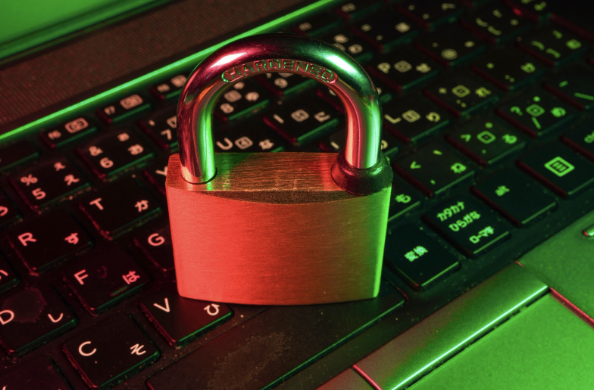11116Views 0Comments

How To Protect Your Small Business Against Cyber Attacks
Cyber attacks can cause a myriad of problems for businesses. Cyber attacks can significantly impact a company’s ability to conduct normal everyday activities such as manufacturing products, digital communication and the ability to process transactions with customers. Not to mention that cyber attacks also often result in hackers stealing sensitive customer data from businesses, such as credit card information or address information of customers. Losing sensitive customer data can significantly damage a company’s reputation. In fact, more than 50% of Americans would be less likely to be a customer of a company that was breached by a cyber attack. This emphasises the importance of business cyber security and should act as a warning to businesses with inadequate cyber security measures in place.
Small And Medium Businesses Need To Rethink Their Cyber Security Measures
Whenever we hear about cyber attacks happening in the news it is almost always a large multinational company that is the victim of such an attack. This means that we may associate cyber attacks more with larger companies, causing smaller businesses to be lackadaisical in the assumption that they are not going to be a victim of cyber attacks. However, almost half of all business cyber attacks impact companies with under a thousand employees. This is not surprising when just under a third of small businesses that collected customers’ credit card information actually have no cyber security measures in place to protect this data from falling into the hands of hackers.
Train Employees About Security Principals
By training your employees in basic cyber security practices they will pick up vital information that can make them less likely to make cyber security mistakes, meaning your business will be at less threat from outside intrusion from hackers. You can create a document that is easily accessible to all employees and details your cyber security protocol as a business. Employees can use this document as a reference point next time they encounter something that looks suspicious, making them more likely to alert management within the organisation so that the company can address any cyber security issues early before they manifest themselves into something more serious. Essential cyber security practices include:
-
- Passwords: Ensuring that employees have strong passwords that are difficult to guess and that they don’t share their passwords with anybody, regardless if they are in the same organisation or not.
- Avoid Clicking Links On Emails: Hackers send out emails which prompt people to click links on emails, they may tell the recipient they have won a competition and they need to click a link to receive their prize. Clicking the link may take them to a website that instals malware onto their computer and potentially the whole network as a whole. Instructing employees to be cautious of emails that originate outside of their company is always a good practice to have.
- Ensure That Software Is Kept Up To Date: Outdated software may have exploits that hackers may be currently using to target computer devices that have older versions of software. You can download antivirus software which can scan your computer for outdated software, in some cases these updates can be updated automatically, but in other cases, you may receive a pop-up that will tell you this information. However, it is best practice to check for updates in your system settings at least once a week.
- Encrypt Devices: Encryption scrambles data into random code which makes it unreadable. Data can be unscrambled with a recovery key or a password, meaning that even if hackers do gain access to your data they will find that the data itself is unusable.
- Use Multi-Factor Authentication: You will likely use multi-factor authentication at some point. When you attempt to log into an account you are then prompted by a code that is either through SMS to a mobile phone or through email to a trusted device associated with the account. This means that even if an unauthorised person was able to somehow get your password they would not be able to access the account without knowing the code that needs to be entered as part of your multifactor security. Best of all you will receive a notification if somebody other than you tries to access your account; you can then change your password to help prevent future attempts and contact relevant individuals within your organisation to assess if there have been any other attempts to breach any other accounts within your organisation.
Ensure That The Computers That Your Employees Use Are Resistant Against Malware
Ensuring that every device owned by your company has antivirus software is a good way not only to help you avoid viruses in the first place but also to detect any viruses that may be on your computer already and work on eliminating them. You can get antivirus software which scans for viruses and malware automatically instead of the user having to start the scan manually. Automatic scans can be set to start on a predetermined time and date, so if you wanted you could set all of your devices to scan once a day for extra peace of mind. You should also ensure that the software on each computer is kept up to date as much as possible, as older hackers may have found exploits in older versions of software which may put the security of your computer system at risk.
Provide Firewall Security For Your Internet Connection
Firewalls are a set of programs that prevent outsiders from accessing data on a private network; they act as a 24/7 filter scanning any data that enters or leaves your network. Firewalls help prevent anything that looks suspicious from getting through. Firewalls can come as hardware and software. Hardware is a physical piece of technology, such as a television and software is a virtual piece of technology such as a computer operating system or an antivirus download onto your computer.
Create A Mobile Device Action Plan
Mobile devices can compromise the cyber security of your organisation, particularly if they have sensitive organisational information on them or they have access to an online portal that has any sensitive information on them. By requiring users to password protect their devices, encrypt their data and ensure that they have security apps on their phones to help prevent hackers from breaching their mobile phones. You should also encourage employees to use a virtual private network (VPN) when using public networks, such as on the train to and from work. VPNs work by masking the IP address of devices, which makes it much more difficult for hackers to hack your phone through WIFI. Many public networks are unsecured, which means that anybody can use them. Hackers use these networks to breach the devices of people who connect to the networks, by using a VPN you are making it more difficult for hackers to breach your phone’s security.
Conclusion
Cybersecurity is important in organisations of all sizes, however too many smaller businesses still have inadequate cybersecurity to protect themselves. Creating a series of cyber security practices enables organisations to help ensure all the employees who work for them are knowledgeable about cyber security.


